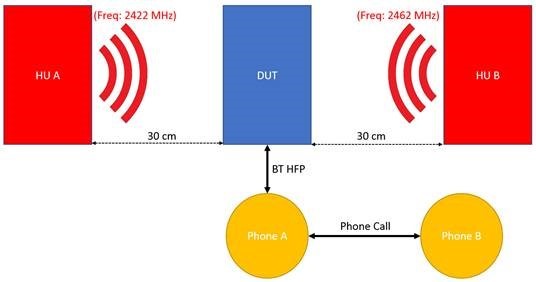We are hearing random popping noise when in a phone call, and the pops increases if the RF interference increases in our test. We have tried the following suggestions from Griffs, Brad, eSCO does improve this issue but we think it is not good enough:
- In general, it seems like this issue is only observed on SCO connections. Any device from the last 6 years should support eSCO. Make sure you’re connecting with eSCO whenever possible.
- In case of SCO connection, remove any page_scan calls.
It looks like the pops is caused by the error packets, we would like to know if it is possible to conceal the pops while receiving error packets? The attached is the bts we used, please let me know if you need any information.
https://e2e.ti.com/cfs-file/__key/communityserver-discussions-components-files/538/TI_5F00_WL18xx.7z


